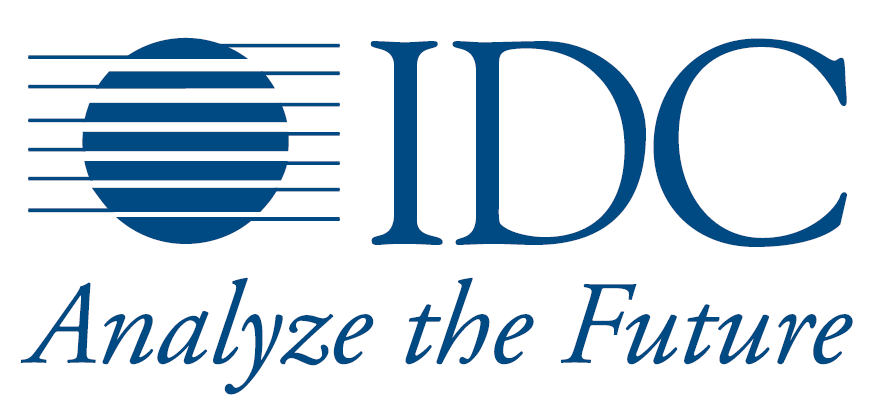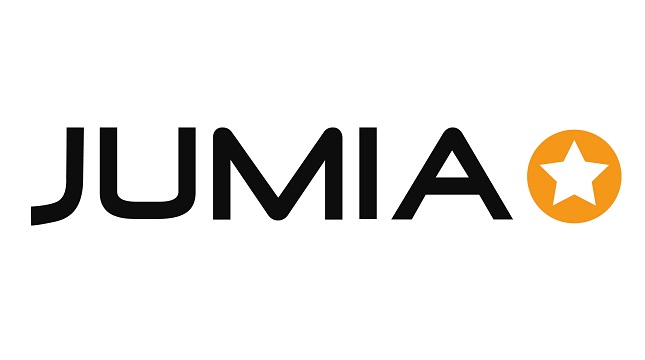E-Business
Five Critical Initiatives for Retail Coys Deploying Mobile Solutions

International Data Corporation (IDC) Retail Insights has announced the availability of the first IDC PeerScape, “Business Strategy: IDC PeerScape – Retail Mobility Project-Based Initiatives,” revealing five critical initiatives for retail companies deploying mobile solutions.
IDC PeerScapes were designed to identify the practices that have the most impact on the success or failure of an initiative.
For retail companies seeking new mobile solutions to build customer loyalty and improve business performance, the report highlights the five critical initiatives that can make or break the program.
Leslie Hand, research director and report author, examined several real-world retail deployments and identifies the initiatives that will have the greatest impact on the success of similar projects.
The report also measures the impact of these practices on revenue, customer satisfaction, and operational productivity, and assesses how difficult they are to deploy and maintain.
For the past half century, retail business growth has been achieved by opening more stores, broadening assortments, and automating processes to make shopping more convenient and valuable for the consumer.
Satisfying customers today transcends place or time, and growth is dependent on continually creating “best experiences” — the last best experience etched in the mind of the consumer every time a shopping journey is more extraordinary and engaging than the last.
Mobility, a critical enabler of this “best experience,” requires applications that will engage and inform consumers and increase employee productivity.
Mobility brings with it significant complexity and a rate of change most retailers have never seen before.
For those companies that have successfully deployed mobile solutions, the rewards have been greater customer loyalty and higher sales and profitability.
On the other hand, those that have failed to meet customer expectations have seen abandoned “carts” and lost sales, and declining performance.
This IDC Retail Insights report is a guide to critical initiatives for retail mobility projects.
The five critical initiatives include, Identify and Align Cross-Functional Resources; Establish KPIs and Test for Performance and Usability; Clearly Articulate Governance Policies; Adopt Agile Implementation Methods and Leverage Cloud or SaaS-Based Services.
Leslie reported that, “Consumer-facing and enterprise-facing mobility programs top the list of initiatives retailers are actively pursuing, and applying the best practices of the leaders can speed progress and reduce costs.”
Mobile applications will soon be playing a part in many more retail transactions. But as mobile app–enabled sales spread from the early adopters to mainstream buyers, there will be dramatically increased reputational risk associated with app failures or poor customer experiences.
More effective testing will become increasingly important.
The consumer’s last best experience will be the benchmark for all others, and customers will increasingly expect mobile devices to play a central role in their shopping.
E-Business
Firm Enhances its Security Awareness Platform with SCORM and PDF Support

Kaspersky has introduced an update to its Automated Security Awareness Platform, adding full support for PDF and SCORM (Sharable Content Object Reference Model) – the industry-standard protocol for deploying and managing e-learning content.

The enhancement enables organisations to build fully customised cybersecurity training programmes that reflect their infrastructure, risk profile, and internal policies, while continuing to benefit from Kaspersky’s expert-driven security content and phishing simulations.
According to the Kaspersky report titled “Redefining the Human Factor in Cybersecurity”, employees responding to phishing attacks was one of the main causes of cyber incidents in companies worldwide, accounting for 21% of cases among other reasons.
At the same time, additional Kaspersky research reveals that social engineering attacks are predicted to increase more than any other type in the nearest future, with 87% of respondents believing that social engineering attacks will become even more effective due to the use of AI tools.
The new Kaspersky Automated Security Awareness Platform (Kaspersky ASAP) update directly addresses several persistent challenges such as reducing the number of human-related incidents, cutting time spent on managing training programmes, decreasing regulatory and compliance risks, and minimising potential legal or reputational damage stemming from cybersecurity breaches.
With the new SCORM support, the platform becomes even more flexible: companies can now upload, track, and manage their own SCORM-based learning materials directly within the system. In addition, companies can accelerate their programmes by using easier-to-create PDF-formats.
This allows organisations to tailor training to their specific technology stacks and emerging threats targeting their industry or region. Businesses that have already invested in third-party SCORM courses or internal learning development can now seamlessly reuse their existing modules, protecting their prior investments while strengthening their cybersecurity posture.
The combination of Kaspersky’s embedded content built on real cases uncovered by the company’s world-class experts with customers’ PDF materials or SCORM modules enables a true best-of-breed approach to human risk management.
Organisations can supplement Kaspersky’s up-to-date cyberattack scenarios with internal policies, unique workflows, and industry-specific lessons, ensuring training resonates with employees and reflects real operational challenges.
“Human behaviour remains one of the most unpredictable elements in cybersecurity and also one of the easiest for attackers to exploit. By adding SCORM support to Kaspersky Automated Security Awareness Platform, we’re giving organisations the flexibility to build training programmes that truly match their internal realities.
“Combined with Kaspersky’s expert-driven content and real-world attack data, this update empowers companies to create more adaptive, relevant, and impactful awareness programmes than ever before,” comments Svetlana Kalashnikova, Security Awareness expert at Kaspersky.
E-Business
NDPC, 60 DPAs Collaborate on Enforcing Privacy Rights in the Use of Al

Nigeria Data Protection Commission (NDPC) has joined sixty (60) other Data Protection Authorities (DPAs) in endorsing the “Joint Statement on Al-Generated Imagery and the Protection of Privacy.”

NDPC
The Joint Statement was coordinated by the International Enforcement Cooperation Working Group (IEWG) of the Global Privacy Assembly.
This underscores the growing concerns regarding the privacy risks posed by Artificial Intelligence tools capable of generating realistic images and videos of identifiable individuals.
The Joint Statement highlights concerns over the misuse of Al-powered tools to create non-consensual imagery, defamatory content, and other harmful materials, particularly affecting children and vulnerable groups.
It calls on organisations to implement strong safeguards, ensure transparency, provide effective content removal mechanisms, and comply fully with applicable data protection laws.
The current effort forms part of a continuum of steps being taken by Nigeria to ensure the responsible use of Al. It will be recalled that the Honourable Minister of Communications, Innovation and Digital Economy, Dr ‘Bosun Tijani, led the initiative for the development of the National Al Strategy.
The NDPC also issued the General Application and Implementation Directive (GAID), which, amongst others, mandates privacy by design and privacy by default in the development and deployment of Al tools.
The National Commissioner/CEO of the NDPC, Dr Vincent Olatunji, has directed that the Nigeria Data Protection Act (NDP Act) Compliance Audit Returns (CAR) by data controllers and processors of major importance will serve as a yardstick for monitoring and evaluating responsible use of Al for data processing in Nigeria.
E-Business
Jumia Tech Week 2026 Begins with Tech Deals on Smartphones, Electronics, and Everyday Technology

Jumia Nigeria has announced the launch of Jumia Tech Week 2026, a two-week campaign offering customers access to discounted technology products across key categories, including smartphones, computing, home entertainment, and wearable devices.

Starting from March 2 to March 15, Jumia Nigeria’s Tech Week 2026 is themed ‘Tech Products for Less’ – a deliberate commitment by the e-commerce giant to drive down the cost of technology products for Nigerian consumers. The campaign offers significant price reductions across key product categories, enabling more Nigerians to access the devices they need at prices that reflect the company’s dedication to affordability and consumer value.
Jumia Tech Week will feature deals across a wide range of product categories, including mobile phones, computer systems and accessories, televisions and audio equipment, gaming products, home appliances, portable power solutions, health technology,, and wearable devices.
Customers will also have access to curated recommendations, including top smartphone deals, must-have accessories, gaming essentials, and home technology upgrades.
According to Temidayo Ojo, CEO of Jumia Nigeria, the campaign reflects Jumia’s broader commitment to making everyday technology more accessible to Nigerians.
“Technology has become an essential part of everyday life, and access to the right devices enables more people to participate fully in the digital economy,” said Ojo. “At Jumia, we remain focused on expanding access and improving the shopping experience as we continue to build Nigeria’s everyday retail destination.”
The campaign will include a range of customer engagement initiatives such as flash sales, brand days, anchor deals and interactive activities designed to enhance the online shopping experience.
Special highlight periods, described as Explosion Days, will take place on March 6 and March 13, featuring limited-time offers across selected technology categories. Customers will also be able to participate in interactive activities, including product-based games, treasure hunts,, and live shopping sessions during the campaign period.
The campaign will feature participation from leading brands including Oraimo, Silver Crest, Samsung, Ecoflow, Nivea and Aeon, offering customers a wide selection of technology, household and lifestyle products. Early access promotions already begun during the teaser period from February 16 to March 1, allowing customers to preview selected deals ahead of the official launch.
Jumia Tech Week forms part of the company’s broader strategy to expand e-commerce adoption by improving access to essential products and enhancing the customer experience across its platform. As Nigeria’s e-commerce market continues to grow, Jumia remains focused on strengthening its product assortment, logistics capabilities, and digital experience to serve customers better nationwide.
Customers can participate in the campaign by using the Jumia mobile app or visiting the Jumia website and following the conversation online using #JumiaTechWeek.

 Telecom3 days ago
Telecom3 days agoSunil Bharti Mittal Conferred GSMA Lifetime Achievement Award for Transforming Global Telecommunications

 Telecom3 days ago
Telecom3 days agoWhy Digital Trust Matters: Secure, Responsible AI for African SMEs?

 E-Business3 days ago
E-Business3 days agoJumia Tech Week 2026 Begins with Tech Deals on Smartphones, Electronics, and Everyday Technology

 General News3 days ago
General News3 days agoKrishnan Exits Africa Data Centre to Embark on Professional Chapter

 E-Financial2 days ago
E-Financial2 days agoNRS Targets N40trillion in Tax, Royalty Revenue in 2026

 News3 days ago
News3 days agoAfDB Supports Francophone Africa Start-ups with €6.5M

 E-Business3 days ago
E-Business3 days agoHouse Queries NDIC: ₦5m Max Payout for Failed Bank Depositors

 Telecom3 days ago
Telecom3 days agoHouse Probes Fintech Regulation via Public Hearing on New Commission Bill
























